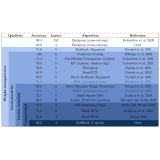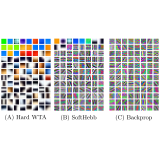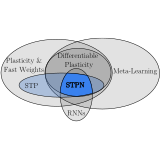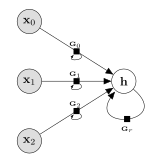|
I am a research engineer at Huawei Technologies, where I do research on efficient deep learning. I graduated with an MSc Machine Learning from University College London, where I was advised by Timoleon Moraitis and Pontus Stenetorp during my dissertation "A new recurrent unit with synaptic short-term plasticity". I was included in the Dean's List (Top 5%) and awarded a Distiction. Previously, I interned as a Software Development Engineer in Amazon Web Services, and obtained a BSc Theoretical Physics from University College London with First Class Honours. |

|
|
I'm interested in multimodal representation learning: improving efficiency and reliability using adaptable networks with adjustable compute budgets, and using more contextualised representations for sequential decision making tasks. |
 
|
Adrien Journé, Hector Garcia Rodriguez, Qinghai Guo, Timoleon Moraitis ICLR notable-top-25% (spotlight), 2023 arXiv / code / talk We train deep ConvNets with an unsupervised Hebbian soft winner-take-all algorithm, multilayer SoftHebb. It sets SOTA results in image classification in CIFAR-10, STL-10 and ImageNet for other biologically plausible networks. SoftHebb increases biological compatibility, parallelisation and performance of state-of-the-art bio-plausible learning. |
 
|
Hector Garcia Rodriguez, Qinghai Guo, Timoleon Moraitis ICML, 2022 arXiv / code / talk / poster / slides STPN is a recurrent neural network that improves Supervised and Reinforcement Learning by meta-learning to adapt its weights to the recent context, inspired by computational neuroscience. Additionally, STPN shows higher energy efficiency in a simulated neuromorphic implementation, due to its optimised explicit forgetting mechanism. |
|
|